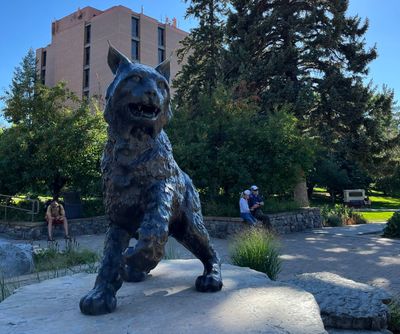Montana State University doesn’t owe students tuition from COVID-19 closures

Montana State University doesn’t owe a student any refunds from tuition or fees when it shut down in-person education in response to the COVID-19 pandemic, the Montana Supreme Court said in an order this week.
MSU did have an “express contract,” one stated in words, with Anthony Cordero, who had sued the Bozeman university alleging it should have paid him back when it transitioned to distance learning.
But the institution never promised a complete in-person education, and it didn’t promise to never shut down the campus if it had a good reason to do so, the justices said.
Cordero had, “at most, a presumption” of in-person education, but MSU retained its right to respond to emergencies, the Supreme Court said.
Additionally, MSU is governed by the Board of Regents, which has full authority in the Montana Constitution to supervise all campuses.
“We cannot fathom upholding a prorated refund of tuition and fees for MSU being forced to close due to inclement weather that prohibits classes, which frequently occurs due to Montana winters,” the order said. “Here, Cordero was never deprived of classes, which were still conducted, albeit online.”
The District Court had found there was no express contract between Cordero and MSU – contrary to the findings of the Supreme Court – and also no “implied contract.”
However, in a unanimous decision by a five-judge panel, the Supreme Court said the overall conclusion the lower court reached in favor of MSU was still correct because MSU didn’t breach “contractual duties with respect to tuition.”
Adrian Miller, a lawyer at Sullivan Miller who represents Cordero, said MSU should have done better for students.
“It is disappointing that the Supreme Court does not believe MSU had an obligation to provide even a prorated refund for services and facilities that were unavailable during its COVID campus closure,” Miller said in an email. “We respect the Supreme Court’s decision, but students deserve better from the university.”
MSU spokesperson Tracy Ellig, however, said the order affirms the university’s actions during the emergency.
“The court’s ruling speaks clearly,” Ellig said in an email. “This ruling vindicates the university against these unfounded claims and reinforces that the university did everything in its power to provide education to students fairly and effectively during the pandemic.”
After COVID-19 hit the country in 2020 and many campuses closed, lawsuits popped up from students alleging various campuses owed them refunds. But courts came to different conclusions.
“Because this is a matter of first impression in Montana, we note other jurisdictions have considered nearly identical agreements between students and universities,” the Montana justices said. “Across the country, the precedent varies with some jurisdictions finding there to be enough evidence to maintain a claim for a contract, and others finding insufficient evidence to maintain a claim for a contract between student and university.”
Cordero never disputed MSU had the right to halt in-person instruction. However, he alleged he shouldn’t have had to pay MSU the same amount, some $19,901 that semester, according to the order, including many fees, for online classes.
As part of his argument, Cordero pointed to numerous marketing materials from MSU that show students making friends in residence halls, working together in labs and the library, and engaging in other community activities.
He alleged those materials reflected a commitment from MSU that included in-person education, but the Supreme Court disagreed.
The materials he provided don’t create a contract, the justices said. Rather, the language “informs students they have access to opportunities on campus,” which aren’t a promise in a contract, the order said.
“Although he did not get the experience he expected to get during the final half of the Spring 2020 semester, Cordero still progressed in his academic program and was able to graduate,” the order said.
The Supreme Court said Cordero doesn’t get any of his fees back either. It said even though the fitness center was temporarily closed, it was maintained, and even though the library was closed, its online services were available, for example.
“Mandatory fees are charged to everybody as a condition of enrollment, and they do not promise anything in return, according to MSU,” the order said.
It said MSU may have encouraged students to go home, but it also made accommodations for students who decided to stay on campus, “including keeping its campus operational so that students could progress and complete their academic programs.”
In its order, the Supreme Court also disagreed that MSU was “unjustly enriched” by keeping tuition and fees from students without giving them their expected benefit. It said Montana law doesn’t allow recovery under “unjust enrichment” if the parties have a written contract.
Daily Montanan is part of States Newsroom, a nonprofit news network supported by grants and a coalition of donors as a 501c(3) public charity. Daily Montanan maintains editorial independence.